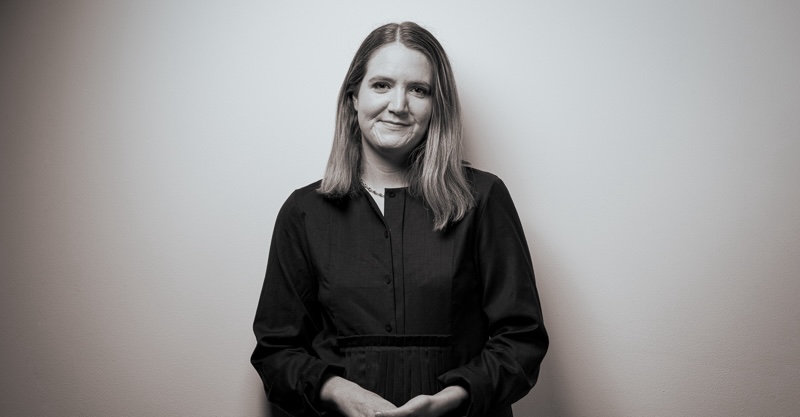Bates Wells’ Hannah Lyons discusses the values at the heart of the firm, the big issues impacting the charity sector and how to make the most of your training contract

“My day-to-day is really varied,” says Hannah Lyons, partner in the Charity and Social Enterprise Department at City law firm Bates Wells, “I work with a real range of organisations, from household name charities to tiny, brand-new charities. You never know what questions are going to pop up.” Giving me a taste of this variety, Lyons talks me through her week so far.
“This week I have been helping a national charity devise its Christmas campaign, making sure it’s compliant with fundraising law and regulation, she says. “I provided some training earlier in the week to a client which funds health research. I have also been advising on the set-up of a new animal charity that wants to register with the Charity Commission.”
Lyons completed a history degree at LSE before undertaking the law conversion course. She trained at another firm before joining the charities team at Bates Wells in 2015, one-year post-qualification. I ask Lyons what first attracted her to the firm. “Firstly, it has the biggest dedicated charities and social enterprise practice and is top ranked across the legal directories,” Lyons replies. But quality work is not all that it has to offer. “Unlike any other firm in the City, Bates Wells has a really strong purpose and values which run through everything we do,” she explains. “Everyone here does much more than just their day job, whether they’re a trustee of a charity or volunteering in some capacity or responding to consultations to change the law for the better.”
Bates Wells was the first law firm to become a B Corp — a certification given to businesses that meet ethical, social and environmental standards, illustrating the firm’s commitment to its values. But Bates Wells’ involvement in the movement has not ended with its own certification. “We also work with lots of B-Corps and help other businesses secure the status too,” Lyons tells me. This involves advising companies as they amend their articles of association to reflect B Corp standards.
Working with purposeful businesses is a large part of what drew Lyons to the charities sector. “I wanted to work with organisations that are doing good in the world,” she explains. Additionally, the complexity of charity law and regulation presents a stimulating challenge. “Charity law allows you to work on really interesting and complex legal cases. Our clients are so dedicated to what they do. So, it’s a real honour to be able to help them achieve their charitable mission by guiding them through the tricky legal aspects.”
So, what are the hot topics affecting this purposeful sector and the lawyers who work in it? “The financial strain on the sector is what most clients are concerned about right now,” Lyons responds. “The pandemic and then the cost-of-living crisis has put strain on a lot of charities, particularly because demand for services has increased but funding hasn’t.” This, of course, must be considered by lawyers working in the sector. “The way we give our advice has to be really commercial and practical, particularly when advising charities that don’t have huge budgets,” Lyons stresses.
I am curious to know whether she sees the election of the Labour government having any effect on this issue. “Labour has always been seen as more of a friend to the charity sector,” she responds. “They have expressed a desire to involve the sector in policy decisions and support its right to campaign on certain issues,” she says. However, she quickly adds, “I’m not sure whether funding will improve. Recent government statements have been quite pessimistic about how much money is available.”
Other hot topics in the sector include how charities should navigate sensitive cultural debates. “Charities have been caught up in a bit of a culture war in recent years and have been accused of pushing a so-called “woke” agenda, particularly by parts of the right-wing press,” says Lyons. She mentions the engagement by the Charity Commission with the National Trust in 2021 over its publication of a report examining links between its properties, colonial history and the slave trade. “It’s been unfortunate that charities have been dragged into these debates,” Lyons says.
In this vein, Lyons explains how her colleagues in the charities and social enterprise team have been involved in the repatriation and restitution of cultural artifacts held in UK museums. In 2022, Bates Wells lawyers assisted the Horniman Museum in returning 72 artifacts, including six Benin Bronzes, to Nigeria. “Many museums are registered charities, and so in most cases, you need Charity Commission consent to repatriate assets.” she explains.
Since making partner at the end of last year, Lyons has taken on the role of training principle at Bates Wells. “This is one of my favourite parts of my job,” she tells me, “It’s great to see someone through from their first interview all the way to qualification, watching them grow and develop.” As training principle, Lyons has worked to increase the diversity of the Bates Wells trainee cohort. “We are focused on improving access to law. We saw an increase in applications from non-Russell group unis last year which was great. We also use contextual recruitment tools to help level the playing field,” she continues. “I was involved in the recruitment of our solicitor apprentices who have joined us this September. That was amazing – there were just so many impressive candidates!”
I am keen to hear Lyons’ perspective on the traits that make a successful trainee. “Having a keen interest in the work and being inquisitive,” she responds. “We encourage trainees to take ownership of their work and drive matters forward as much as possible.” An additional bonus is a trainee who fits with the firm’s central ethos: “We are always looking for people who believe in our purpose and values and who get involved in our initiatives and pro bono work,” says Lyons.
On a related note, and wrapping up our discussion, I ask Lyons for the careers advice she would like to give aspiring lawyers. “Be kind to yourself,” is her answer. “Law can be a stressful career, and lawyers tend to put a lot of pressure on themselves. It’s obviously important to strive to reach your potential but it’s equally important to take stock of all the things you’ve achieved so far.” This advice applies to those at any stage of their legal journey, “even getting a training contract these days is a real achievement,” Lyons adds. “Make sure you’re giving yourself a pat on the back when needed.”
About Legal Cheek Careers posts.
